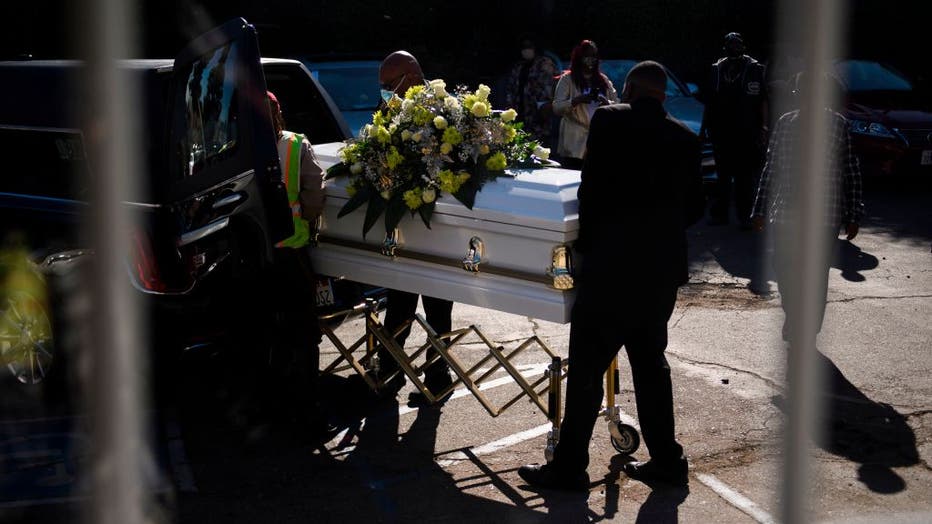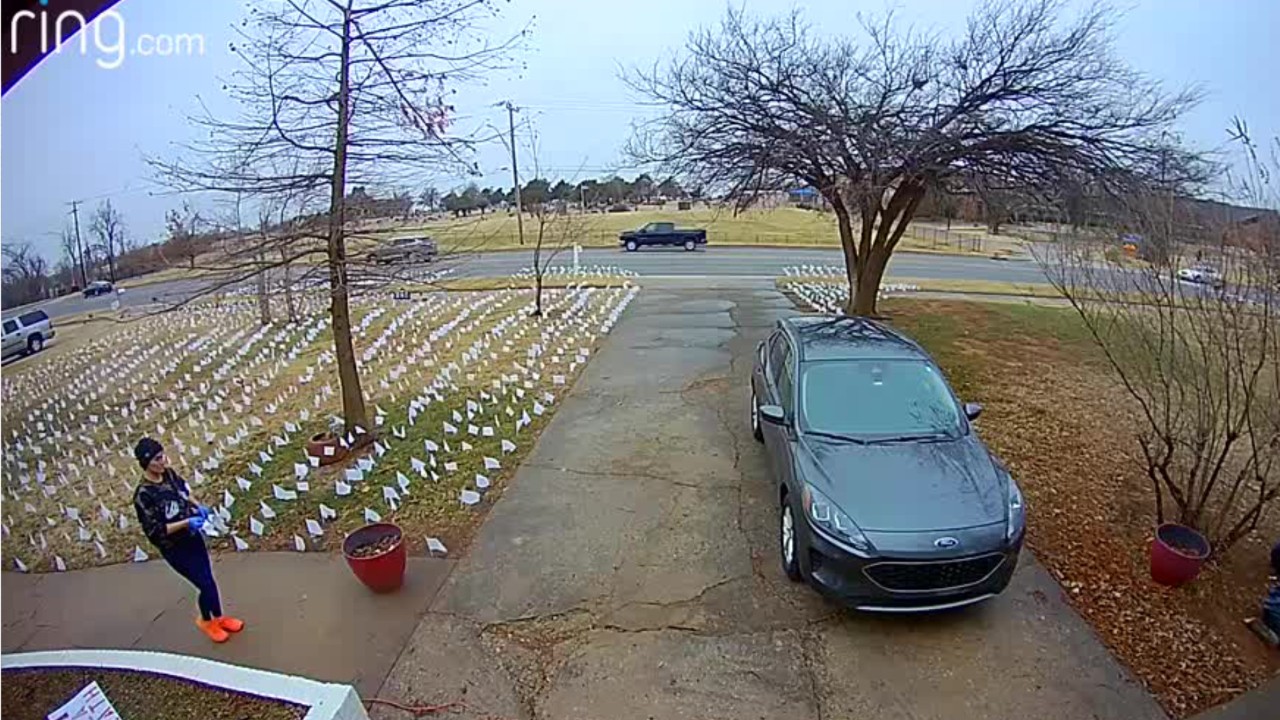FEMA to reimburse families for COVID-19-related funeral expenses
WASHINGTON - The Federal Emergency Management Agency will soon begin reimbursing funeral expenses for many who have lost loved ones to COVID-19 during the pandemic.
FEMA will provide financial assistance for coronavirus-related funeral expenses incurred after Jan. 20, 2020.
The agency announced the funeral assistance program on its website, saying it is "dedicated to helping ease some of the financial stress and burden caused by the virus." The funding will come from the Coronavirus Response and Relief Supplemental Appropriations Act of 2021, which was passed in late 2020, and the $1.9 trillion COVID-19 relief package signed into law this month.
Acting FEMA Administrator Bob Benton on Tuesday testified before a House Appropriations subcommittee on the pandemic response and said the agency would begin to implement the program in early April.
"Right now our focus is empathy. When we talk about individuals that have lost loved ones, we want to make sure we do it in an emphatic way," Benton said. "While we’ve done funeral assistance in disasters, we’ve never done anything at this scale or scope."

FILE - A casket is loaded into a hearse at the Boyd Funeral Home on Jan. 14, 2021 in Los Angeles, California. (Photo by PATRICK T. FALLON/AFP via Getty Images)"The weekend before I turned down 16 families that I couldn't do services for," said owner
FEMA said to be eligible for funeral assistance, the death must have occurred in the U.S., including U.S. territories, and the death certificate must indicate the death was attributed to COVID-19.
"The applicant must be a U.S. citizen, non-citizen national, or qualified alien who incurred funeral expenses after January 20, 2020," the agency says, adding that there is no such requirement for the deceased person.
Individuals who are eligible for funeral assistance will receive a check by mail or funds by direct deposit.
FEMA said anyone with COVID-19-related funeral expenses should "keep and gather documentation." This includes an official death certificate "that attributes the death directly or indirectly to COVID-19" and shows the death occurred in the United States or U.S. territories.
Other documentation is listed as funeral expense documents, such as receipts or a funeral home contract, that includes the applicant’s name, the deceased person’s name, the amount of funeral expenses and the dates the expenses happened.
The agency also said individuals should show any proof of funds received from other sources specifically used toward funeral costs. It is not able to reimburse benefits received from burial or funeral insurance or financial assistance received from voluntary agencies, government agencies or other sources.
Benton said FEMA officials have been participating in "listening sessions" with various funeral organizations to understand the unique cultural needs of funerals across the U.S. He said the agency seeks "to make sure the policy we develop for this and how we assist it covers to the greatest needs of those that have lost loved ones."
FEMA will use a dedicated 1-800 phone number to apply for funeral assistance rather than through an online application, Benton said.
"We think that again, with empathy being a priority, we want to be able to case manage and have that human-to-human interaction as we do this, and make sure we do it in a way that supports everyone’s needs," he said.
Since the onset of the coronavirus outbreak last year, more than 538,000 Americans have died from COVID-19 — a death toll higher than the number of Americans killed in World War II, Korea and Vietnam combined.
The staggering U.S. death toll stands higher than any other country in the world, data from Johns Hopkins University shows. The next highest figure stands at nearly 285,000 deaths in Brazil, followed by close to 196,000 lives lost to COVID-19 in Mexico.
Fenton said he anticipates using the FEMA funding "for those who have passed away and those who, unfortunately, will pass away going forward."
RELATED: More than 1,000 candles form cross to remember COVID-19 victims in Brazil
This story was reported from Cincinnati.



